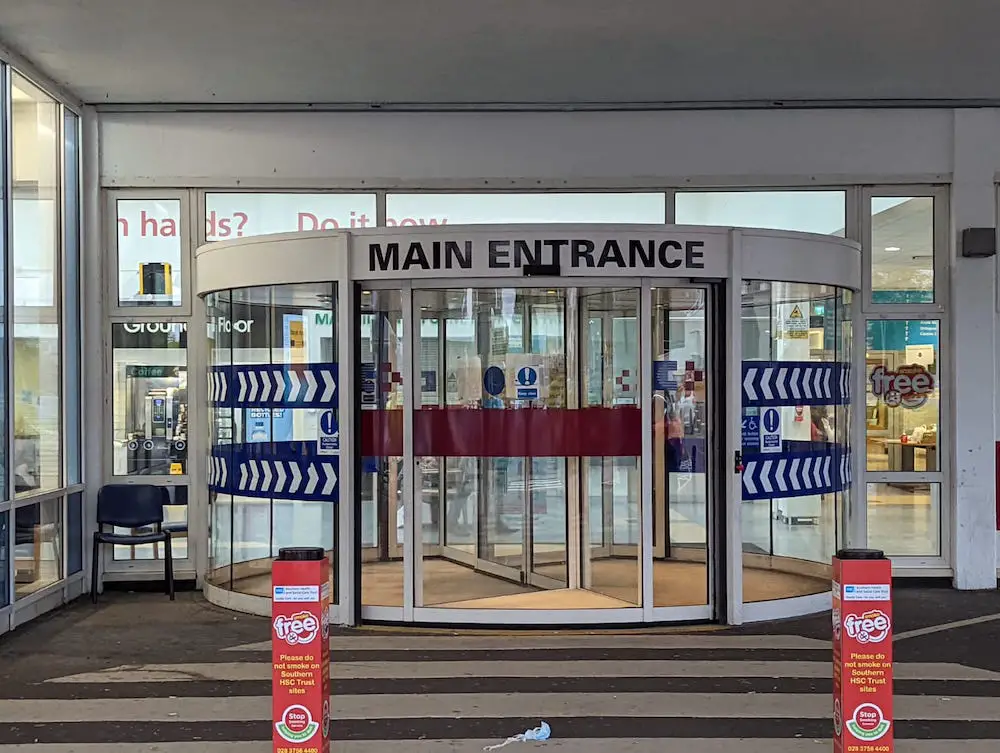
A system that has too little money, too few staff, and is trying to see more and more patients who are presenting with more complicated illnesses.
That is the view on the current state of healthcare provision in Northern Ireland.
Last Thursday’s (April 25) board meeting of the Southern Health & Social Care (HSC) Trust was an opportunity for board chairperson, Eileen Mullan MBE, to give a comprehensive overview of current healthcare provision.
With the exception of waiting lists for in-patients and day-case admissions, where the situation is improving, the chair listed a catalogue of failed targets due to chronic underfunding.
She stated: “In February, The chief executives of Northern Ireland’s five Health Trusts and the NI Ambulance Service attended the Health Committee.
“Roisin Coulter, chief executive of the South Eastern Health and Social Care Trust, opened by calling for ‘a radical overhaul…There are no quick fixes. What is needed will take years’.
“Roisin added: ‘Most of my chief executive colleagues and myself have spent over 30 years working in health and social care in Northern Ireland and, genuinely, we have never experienced anything like this’.
“Macmillan Cancer Support has referred to the latest waiting times for diagnosis and treatment in Northern Ireland as ‘appalling’.
“The data published by the Department of Health NI shows that 2023 was overall the worst year on record for the 62-day target in Northern Ireland.
“In October to December 2023, fewer than one in three people (31%) with cancer started treatment within 62 days of an urgent GP referral, the lowest quarterly figure since the targets were introduced.
“Cancers diagnosed in people aged between 18 and 49 in Northern Ireland have risen by 20% in the past 25 years, according to new research.
“Queen’s University Belfast and the NI Cancer Registry compared 2019 statistics with 1993 figures, when registry records began.
“Figures show that, by 2019, 1,076 people aged 18-49 were diagnosed with some form of cancer.
“The research looked at cancers diagnosed in adults under the age of 50. It found that cancers commonly seen in older people – such a bowel, breast, stomach and pancreatic cancers – are now being diagnosed in younger adults.
“Prostate cancer cases are expected to double worldwide, from 1.4 million in 2020 to 2.9 million in 2040, says a recent report by The Lancet Commission on prostate cancer.
“Waiting lists for in-patient and day case admission have seen a sustained reduction in the number of patients waiting – a 6.4% reduction in patients waiting for in-patient and day case admission compared to September 30, 2023, and a 12.7% reduction since December 31, 2022.
“Over the 18 months of sustained reduction, the treatment waiting list is down 14.4%.
“Since 2019, there has been a five-fold rise in people waiting to see an autism specialist and a 51% increase in prescriptions for ADHD medication, according to the Nuffield Trust.
“172,040 people were on waiting lists for an autism assessment as of December 2023, up from 117,020 a year earlier, and more than five times the 32,220 recorded in December 2019.
“Thea Stein, chief executive of the Nuffield Trust, said ‘The extraordinary, unpredicted and unprecedented rise in demand for autism assessments and ADHD treatments have completely overtaken the NHS’s capacity to meet them.
“It is frankly impossible to imagine how the system can grow fast enough to fulfil this demand.
“The challenge is that we have an obsolete health service model in place to deal with this avalanche of need.
“Public satisfaction with the NHS has reduced again, setting a new low recorded by the long-running British Social Attitudes survey.
“More than 3,000 people were polled by the National Centre for Social Research across England, Wales and Scotland in the autumn.
“24% said they were satisfied with the NHS in 2023, with waiting times and staff shortages the biggest concerns.
“Of the core services, the public was least satisfied with A&E and dentistry. The survey also showed satisfaction with social care had fallen to 13% – again the lowest since the survey began.
“The major reasons for dissatisfaction were long waiting times, staffing shortages and lack of funding.”




